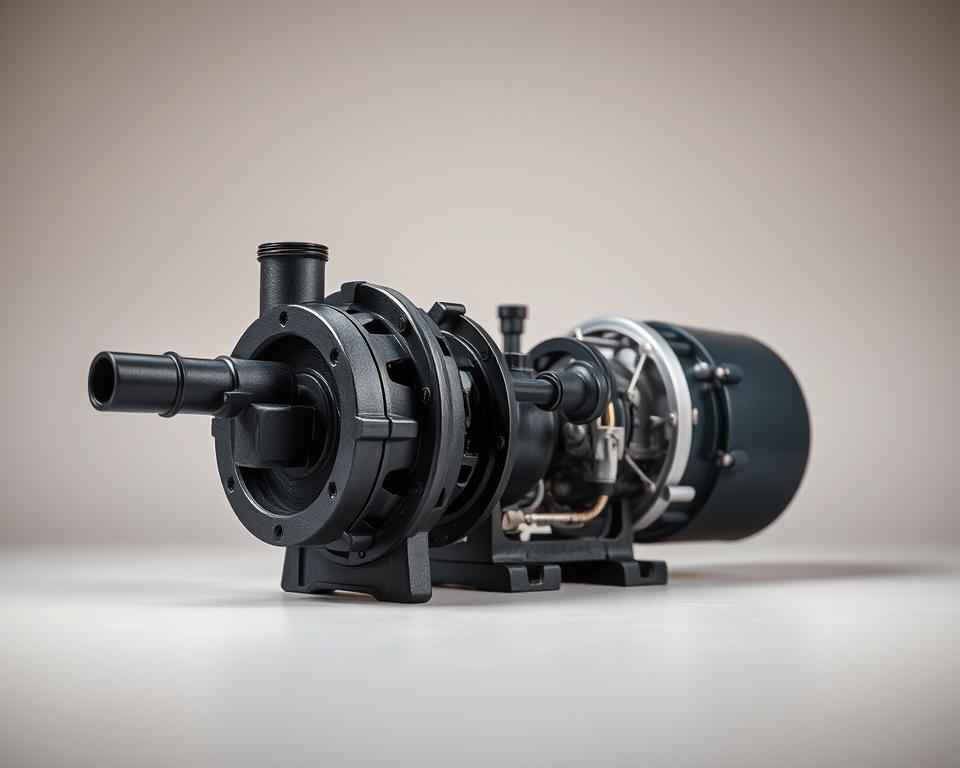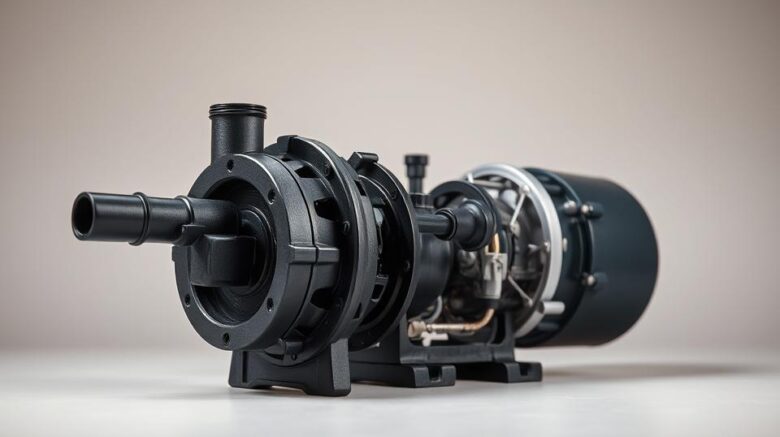Mobile Trailer Septic Tank Pumping: Comprehensive Guide
Neglecting a recreational vehicle septic system can rapidly turn an wallet-draining mistake. If you roam with an RV or mobile rig, it’s critical to recognize the importance of RV septic Tank Pumping. It maintains your travels are trouble-free and living conditions are kept sanitary while on the move. By highlighting regular RV holding tank pump out service near me, this manual seeks to make you ready in looking after your septic system, preventing potential problems — especially when enjoying the great outdoors.
In this article, comprehensive guidance into finding trustworthy mobile septic services is offered. What’s more, learn to identify when your septic Tank needs quick attention. Understanding the process for effective RV septic Tank Pumping is also covered. Instead of scrambling to issues as they occur, enable this guide to arm you with must-have knowledge. This helps guarantee your RV experiences stay carefree!
The Significance of Scheduled RV Septic Tank Pumping
Timely upkeep of your RV’s septic Tank is paramount for its wastewater system’s performance. Skipping this can result in clogs and backups, dampening your vacation and impacting the environment. Sewage leaks from an over-filled Tank can taint the area, creating major hazards.
Using professional Pumping services like All in Sanitation makes sense for RV owners. This step avoids issues and enhances your system’s functionality and longevity. Timely Pump-outs deliver a fresher, safer environment in RV parks and campgrounds.
Understanding Your Trailer’s Septic System
A motorhome septic system includes three primary elements: the black water Tank, grey water Tank, and fresh water Tank. For RV owners, it’s critical to know these parts. They are integral in waste management. The black water Tank holds toilet sewage, while the grey water Tank holds water from sinks and showers.
Each Tank has a distinct role in maintaining the vehicle sanitary and operational. Keeping an eye on the levels in the black water and grey water Tanks is critical. It prevents overflows, bad smells, and damage to the septic system.
To clarify, below is a table that highlights differences between the black water and grey water Tanks:
| Feature | Black Water Tank | Grey Water Tank |
|---|---|---|
| Purpose | Keeps sewage waste | Collects wastewater from sinks and showers |
| Maintenance Frequency | Requires routine Pumping | Needs infrequent emptying |
| Potential Issues | Odors, blockages from solids | Risk of grease buildup |
| Typical Size | Generally bigger than grey water Tank | Smaller than black water Tank typically |
Knowing your trailer’s septic system is cornerstone for maintenance. It ensures smooth travel experiences. Paying attention to both Tanks equals trips with zero septic concerns.

Clues Your Septic Tank Needs Pumping
It’s vital to recognize when your septic Tank needs Pumping to preserve your system functional. Identifying issues early can get around major repairs and environmental harm. Primary signs that call for attention include:
- Slow draining sinks, which may indicate a full Tank or clog.
- Gurgling toilets, suggesting blocked pipes or a failing septic system.
- Foul odors around your RV, an early warning of rising sewage.
- Pooling water near the drain field, showing that your Tank may be overwhelmed.
- Sewage backups in your toilets or drains, a sure sign immediate action is needed.
Staying alert of these signs empowers RV owners to act swiftly, heading off grave issues. Observing your system and responding to these indicators can lengthen your septic system’s lifespan. This approach leads to a better RV experience.
Variables Impacting Pumping Frequency
A septic Tank’s volume largely dictates how often it requires Pumping. Larger Tanks demand fewer service because they contain more waste, while smaller Tanks demand more frequent Pumping.
The number of RVs using the septic system also impacts Pumping frequency. With more RVs, the system experiences heavier strain, necessitating quicker Pumping. Notably through peak seasons, altering the schedule is key to avoid problems.
Here is a table that outlines recommended Pumping intervals based on typical scenarios:
| Septic Tank Size | Number of RVs | Recommended Pumping Frequency |
|---|---|---|
| 500 gallons | 1-2 RVs | About every 2-3 years |
| 1000 gallons | 2-4 RVs | Around every 3-5 years |
| 1500 gallons | 4+ RVs | As often as 1-2 years |
Correctly setting your septic Tank’s Pumping frequency enhances its operation. It also extends its life and effectiveness. This choice is critical for maintaining system health.
How to Choose a Trustworthy Septic Pumping Service
Selecting a solid septic Pumping service is essential for your RV’s septic system health. It secures swift and efficient Pumping, preventing costly future repairs. When shopping for a septic service provider, weigh these key aspects:
- Experience: Prefer companies with a long track record. Their experience with various septic systems, especially those for trailers, is paramount.
- Customer Reviews: Explore online reviews and testimonials. Positive feedback and strong ratings are indicators of a dependable provider.
- Response Time: Rapid response times reflect a company’s focus to their customers and willingness to meet their needs efficiently.
- Knowledge of Systems: Extensive knowledge of trailer septic systems distinguishes some services. Providers like All in Sanitation know these systems well, enabling bespoke service.
Prioritize these considerations to get the most appropriate service for your septic requirements. A reliable septic Pumping service boosts your system’s life and performance, allowing for carefree travel adventures.
Trailer Septic Tank Pumping: Step-by-Step
Trailer septic Tank Pumping involves essential steps for efficiency and safety. It’s vital for RV owners to understand this process before service appointments.
A technician with a trailer-mounted Pump comes first, suited for mobile systems. This technology enables effective waste removal while preserving the environment. They connect the Pump to the rig’s system with a hose reaching the Tank.
The Pump then draws the waste out of the Tank. This action is critical to preserve the septic system sound and prevent overflow. After emptying, the technician examines the Tank for damage or wear, verifying proper function.
Following the Pump-out, waste disposal is crucial. The hauled waste is brought to treatment facilities for safe processing. This step minimizes environmental harm.
The process profits from the trailer-mounted Pump’s efficiency. Consistent service saves time and cost, holding the septic system in prime condition.
Rapid-Response Septic Pumping Services
Unexpected issues with your septic system can demand immediate intervention. For RV enthusiasts, knowing when to get emergency septic Pumping is key to avoid further damage and hefty costs. Situations needing immediate septic Tank Pumping include backups, unpleasant smells, and sewage leaks. Rapidly addressing these issues often requires septic Tank Pump and haul services to efficiently remove waste and return to system functionality.
Providers like All in Sanitation guarantee 24/7 emergency septic Pumping, ensuring help is always available at any hour. Being proactive with these services significantly improves your septic system’s lifespan and performance. Having a trusted septic service close at hand can lower expenses and stress in emergencies, ensuring uninterrupted enjoyment of RV adventures.
Pointers for Caring for Your RV Septic System
Keeping your motorhome’s septic system in peak shape is critical. Proactive maintenance strategies can save you from costly problems later. Start with regular checks for damage, leaks, or strange smells for RV septic Tank care.
Appropriate waste disposal is fundamental for a healthy system. Never flush items that won’t break down, and opt for septic-friendly products. It’s important that everyone is aware of how their actions affect the septic system. This ensures it remains functional and efficient.
- Conduct periodic checks for leaks and unusual odors.
- Stay in touch with your septic service provider for prompt maintenance.
- Utilize septic-safe toilet paper and cleaning supplies.
- Avoid pouring chemicals down the drain that could harm the balance of bacteria in the Tank.
- Arrange for annual professional inspections to catch potential issues early.
Implementing these steps enables RV owners extend their RV septic systems’ life and performance.
Usual Troubles with Trailer Septic Systems
Trailer septic systems often face hurdles that annoy RV owners. Solve these issues early to sidestep bigger problems later. Clogs in septic Tanks are frequent, mainly due to not disposing of waste properly. To reduce clogs, use RV-safe toilet paper and do regular maintenance.
Another big issue is odor control. Bad smells can signal backups or leaks, needing immediate action. To reduce odors, ensure the system is well-ventilated and the septic Tank is emptied as needed.
Leaks can happen from wear or incorrect installations. Quick identification of leaks aids avoiding environmental damage and keeps the system working. Regular inspections are important to spot these issues early.
To prevent common issues, follow preventative strategies like regular care and proper waste disposal. Informed and proactive RV owners can savor their travels without hassle and with peace of mind.
Final Notes
Being savvy about trailer septic Tank Pumping is key for RV and trailer owners. Routine maintenance and spotting trouble signs in your septic system can elevate* your RVing experience significantly. Managing your RV’s septic system well ensures both safety and comfort during your outdoor adventures.
Choosing a reliable service for your trailer’s septic Tank Pumping is critical. Hiring experts like All in Sanitation guarantees your mobile waste management is top-notch. This approach is not just environmentally sound, but it also elevates* the camping experience, making it more enjoyable and sustainable.
Consistently maintaining your septic system minimizes emergencies, boosting your nature stays. Adequate care and understanding allow memorable trips for the best reasons.
